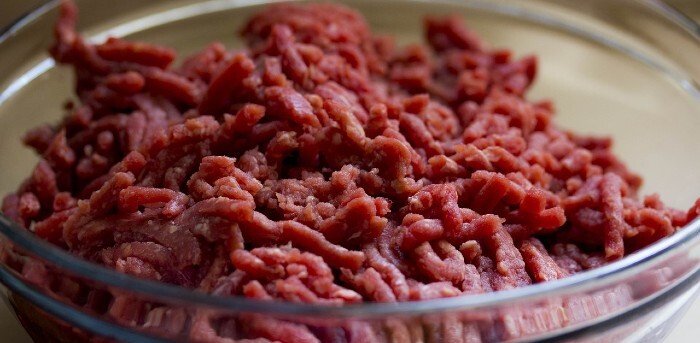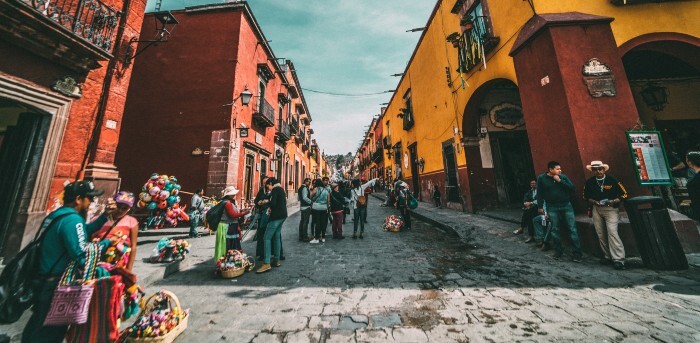Stolen Grillers: Taco Bell's Shifty History

Taco Bell is known for two probably related things: producing adequate-quality burritos for unbelievably low prices and giving you diarrhea. It’s probably not surprising, then, that their history is full of shit that bubbles up out of nowhere and leaves a bad smell behind. No one thinks Taco Bell is anything but an inferior facsimile of Mexican food, but you probably don’t realize just how true that is.
The First Taco Bell Wasn’t a Taco Bell

Bell’s Drive In opened in 1950 in San Bernardino, California, but it didn’t sell tacos. Glen Bell’s first stab at the food industry involved selling burgers and hot dogs, a cuisine much more befitting of someone with that name.
They Stole Their Tacos

Bell’s Drive In was located across the street from a Mexican mom and pop called the Mitla Cafe, and he watched jealously as hordes lined up every day for their tacos. Eventually, he ambled over, asked some pointed questions, and eventually even got the employees to show him how their tacos were made. Although many remained loyal to Mitla, which still exists, their tacos became the basis of a corporate empire.
Becoming Taco Bell
After Bell pivoted to tacos, it took him a decade to get the branding right, naming the restaurant Taco Tia and then El Taco before realizing his name came with a built-in logo. He was that thick.
Crushing the Competition

Pepsi bought Taco Bell in 1978, and not long after, the company noticed that a Midwestern chain called Zantigo was doing way better than the stupid little taco stand they just acquired. Rather than just playing the hand they were dealt, they bought Zantigo, too, then systematically replaced them all with Taco Bells. They even stole Zantigo’s unique architectural design, which is why all Taco Bells look like that.
They Stole the Taco Bell Dog

Okay, not the physical dog. The idea for the advertising campaign came from two Michigan filmmakers who had a contract with Taco Bell to develop the commercials when the company just turned around and took the idea to an ad agency. Taco Bell eventually had to pay them $42 million.
They Ruined Gidget’s Career
The physical dog, Gidget, suffered consequences for those commercials, too. "She was kind of typecast, so she never really got much work after that," her trainer said. She was reduced to bit parts and Legally Blonde cameos until she died in 2009.
The 2000 Shell Recall

In 2000, Taco Bell had to recall shells from 7,000 restaurants after it was discovered they may have been contaminated with unapproved genetically modified corn. That doesn’t sound like a big deal if you’re not a Natural News reader, but it turned out the corn caused allergic reactions in humans, so a lot of people are afraid of GMOs now because of bad tacos.
Hunger Striking Farm Workers

In 2002, the farm workers who pick the tomatoes in your Nachos BellGrande began a three-year boycott over horrific working conditions that included a hunger strike outside Taco Bell’s headquarters. By 2005, Taco Bell agreed to meet their demands, which included a one cent per pound pay raise, which sounds insulting until you realize that nearly doubled their wages. Then it’s extra insulting.
Don’t Cross 50 Cent
In 2008, Taco Bell “made a good faith, charitable offer to 50 Cent to change his name to either 79, 89 or 99 Cent for one day by rapping his order at a Taco Bell” in exchange for a “$10,000 donation to the charity of his choice.” The problem was that they didn’t actually ask him, instead proposing the deal publicly in a series of print ads that used his name without his permission. He’s pretty protective over that, having sued a video game company for it the previous year, so he also sued Taco Bell for $4 million.
88% Beef

Taco Bell has a history of weirdly dramatic advertising. In 2011, they were sued by a law firm who claimed their beef didn’t meet the legal definition of beef by containing more than 50% fillers, so Taco Bell created an entire advertising campaign to inform the public that their beef is almost 9/10ths beef, thank you very much. Despite the major Michael Scott move, after the law firm dropped the lawsuit, they ran even more ads demanding an apology.
Horse Meat

They were eating, well, hopefully not also crow two years later, when beef from Taco Bells in the U.K. tested positive for the presence of horse meat. The company recalled the offending beef and stopped buying from that supplier, but the damage was done, further repelling already flavor-suspicious U.K. customers and allowing McDonald’s to use the slogan “Still Not Horse.”
U.S. Taco
In 2014, Taco Bell launched a new franchise called U.S. Taco, serving upscale tacos and craft beer in an attempt to entice the fast casual crowd. The operation failed pretty quickly because they had obviously and completely misunderstood their customer base.
Taco Bell Cantinas

They focused instead on their Taco Bell Cantinas, having realized that all of their customers are coming from sleazy bars after drinking several $2 margaritas, so why not bring the $2 margaritas to them? Taco Bell Cantina opened as a 24-hour restaurant on the Vegas strip that offered alcoholic Freeze drinks and a DJ booth, among other proudly dirtbag amenities.
Taco Mode
In 2017, Taco Bell partnered with Lyft to offer “Taco Mode,” an option that allowed riders to request a taco stop during their ride. It turned out Lyft drivers weren’t pleased about spending half an hour in a drive thru line at two in the morning so some drunk frat boy can spill Fire Sauce all over their upholstery, so Taco Bell clarified that it was an optional service drivers could provide that was only in testing stages, which is why you never see it.
Mexican Taco Bell

Possibly the most damning indictment of Taco Bell is the fact that they’ve never managed to make it work in Mexico -- you know, the place their food ostensibly comes from. They tried twice, once in 1992 and again in 2007, to open restaurants in the country, but they always close within a few years, providing a definite answer to the question, “Why would you go to Taco Bell when you could get real tacos?”
Top image: dusan jovic/Unsplash